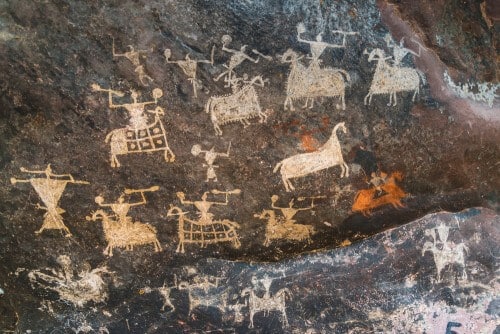The main researcher: "By preferring the adult animals, the human race destroys its pension fund instead of just eating from the interest"

"Man is a unique super-predator" so state researchers who publish their findings in an article in the journal Science entitled "Details of the unrestrained hunter's activity and its effect on the hunted".
In the article, the researchers note the destructive human activity in all ecological environments. At sea: humans remove fish from the system 14 times faster than all marine predators combined. And on land, people kill supercarnivores such as bears, wolves, lions, tigers and tigers at a rate 9 times greater than the natural rate.
According to the researchers: "The most impressive observation" is that man focuses mainly on killing adults. Killing mature, large and healthy animals is an activity opposite to everything that takes place in nature, since in nature those who are hunted are young, sick and weak, so there is a balance in nature in which the predators "preserve and maintain a healthy prey population."
This balance is grossly violated by man's killing activity, made possible by the technological progress that has given man tools of killing that can be used cheaply, easily and with minimal risk, because compared to any other predator who risks injuries, injuries and even death, the "human predator" who uses bullets in nets and fishing rods is safe. The human predator is safe and is not limited by pangs of conscience that result from instinctive tracking.
Elsewhere I wrote that one of the main problems of the human race is technological development that precedes the "cultural instincts" by tens of thousands of years, a situation in which the instincts and the culture are unable to activate inhibitions that in the past would have prevented negative activities - a. R.
Killing adult individuals causes extinction and to a certain extent creates an (evolutionary) impulse in the direction of small individuals (as in fish), a situation that disrupts the environmental system and harms the food chain.
To explain the severe results of harming adult individuals, Prof. Tom Richer (one of the authors of the study) uses a reference from the economic world. Defining the adults in the animal population as "the capital of the reproductive system" and comparing this capital to the human pension fund, the researcher says that: "We eat the fund instead of eating only the interest."
The tendency to kill adult animals goes against the basis of biological existence because when a predator harms fertile animals, the reproductive skills of the entire population are affected.
Dr. Chris Carbone Dr. Chris Carbone from the Zoological Society of London (Zoological Society of London), who studied predator-prey relationships, explains that there is a fundamental problem and that is "the population density of the human predator versus the prey,"
According to him: "We exist at a much higher density than that of a natural predator", because if, for example, 100 zebras "support" one lion, then in the human case we are many hundreds of people mad, which disrupts the "method", and so also if we were not an effective hunter ( technologically) we would still cause great damage to the ecosystem due to the explosion of the human population.
And I have been arguing for a long time that the time has come that instead of controlling the environment for the sake of the human population, there should be control of the human population for the sake of the environment.
Compared to most species that exist for millions of years and that humanity destroys, the human race is very young. A species that has existed (only) for about 200,000 years and for the last tens of thousands of years has been engaged in self-destruction while destroying the environment is not a successful species. This despite special and unique features, is it possible that one of those unique features, a feature that is buried somewhere in the depths of human genetics, is the tendency to commit suicide?
If such a feature is really hidden, perhaps it can be tilted and directed so that the natural environment is not harmed?

One response
Pretty